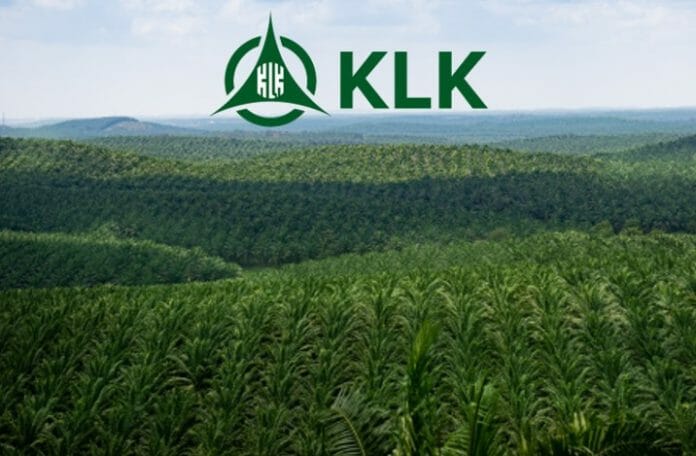There was a marked improvement in earnings delivery (against expectations) by the sector in the recently-concluded 2QCY23 results season, vs. a washout in the preceding quarter, with 10%/50%/40% coming in above/within/below our forecasts, vs. 11%/89% coming in above/below in the preceding quarter.
A difficult 1H
Kenanga Investment Bank (Kenanga IB) said whilst CPO traded between RM3,500 to RM4,000 per MT for the past six months, the first quarter earnings disappointed traders, investors and the planters as input costs shot up as some production remained disrupted by lingering labour shortfall.
Consequently, earnings expectations were cut. Despite first quarter earnings downgrade, the recent second quarter earnings still proved disappointing. 2QCY23 edible oil prices, including CPO, were unusually weak and palm oil production stayed costly with downstream operations in loses or barely profitable.
Second half prospects should brighten
Thanks to a combination of higher production, lower input costs and relatively firm selling prices, plantation earnings should fare better in the 2H of 2023. Historically, about 55% of annual crude oil palm is harvested in the second half of the calendar year with Sept or Oct (occasionally in Nov or Aug) registering the best monthly output.
This translates to 20% more output in the 2H to absorb relatively higher fixed estate cost compared to 1H.
Input costs, such as fertiliser and diesel have also eased YoY. Fertiliser cost is about 40% below the peak in 2QCY22 but still 50% above the 10-year average.
The energy cost has eased as well but higher wages will stay sticky. Palm kernel (PK), a side product of milling FFB to extract CPO, is sold to help offset CPO production cost. While CPO is mostly consumed (70%) as food, hence more resilient demand, PK ends up in personal care, cosmetics and industrial products which are currently facing slower off-take due to overstocking during the pandemic as well slower economic outlook.
Consequently, recent PK oil (PKO) prices have been trading more or less at par with CPO prices instead of at the normal 20%−30% premium.
In turn, PK sale proceeds used to lower CPO production cost have shrunk. PK and PKO inventories should eventually adjust but this will occur more likely in 2024 rather than this year.
Palm oil prices have been trading range bound for much of 2023 and are likely to stay so for the rest of the year. Unless the pending El Nino turns out more severe than forecasted, Kenanga IB expects CPO prices to average RM3,800 per MT over 2023 and 2024 from healthy demand on the back of the following:
1. Growing Asia Pacific’s food intake. Underpinned by demographic growth and rising affluence, Asia Pacific is the world’s leading market for edible oils. China’s intake alone is almost 1.5x that of EU, the second largest market while India and Indonesia are in the midst of surpassing the US. Importantly, palm oil is king in the Asia Pacific.
2. Abundant and affordable. Palm oil’s dominance is underpinned by its price competitiveness and availability throughout the year. About half of all the edible oils traded internationally are palm oil. It is not just widely available and more affordable but palm oil is also flexible, including being turned into biodiesel.
3. Biofuel demand. Indonesia has adopted a biofuel policy, akin to the EU, to improve energy security and the environment whilst concurrently supporting its rural economy. Today, Indonesia is the 3rd biggest biofuel market after the EU and US. More importantly, Indonesia is the single largest palm-based biodiesel market in the world.
With a robust demand, 2024 supply-demand balance continue to look delicate.
Higher likelihood of El Nino but severity has yet to worsen, so far. Upstream as well as downstream plantation earnings were weak in 1HCY23. Upstream earnings should improve in upcoming 2H from seasonally higher output, softer input costs and firm crude palm oil prices. With demand for crude palm oil remaining robust and growing, earnings may bottom out in 2023 or 2024 on CPO price of RM3,800 per MT.
Sector gearing is also manageable
Even KLK, which is offering to buy up to 65% of Boustead Plantations should not see its net gearing exceeding 60%. The sector is also Shariah compliant but the sector lacks a strong upside catalyst. A very severe El Nino may trigger crude palm oil to trade at higher prices but, so far, in its latest 14 Sept 2023 update, US-based NOAA have raised the odds of an El Nino occurring but continues to maintain the severity as “strong” (rather than “very strong” or “moderate”).
Kenanga IB maintains NEUTRAL on KLK (OP; TP: RM24.50) as their sector pick given its track record, efficient upstream and strong regional presence. Its recent general offer for Boustead Plantations is also fairly priced even after factoring the urgent replanting need of some of the latter’s estates.
Kenanga IB also likes PPB (OP; TP: RM19.30) for its strong market niches in selected regional consumer and FMCG exposure.









